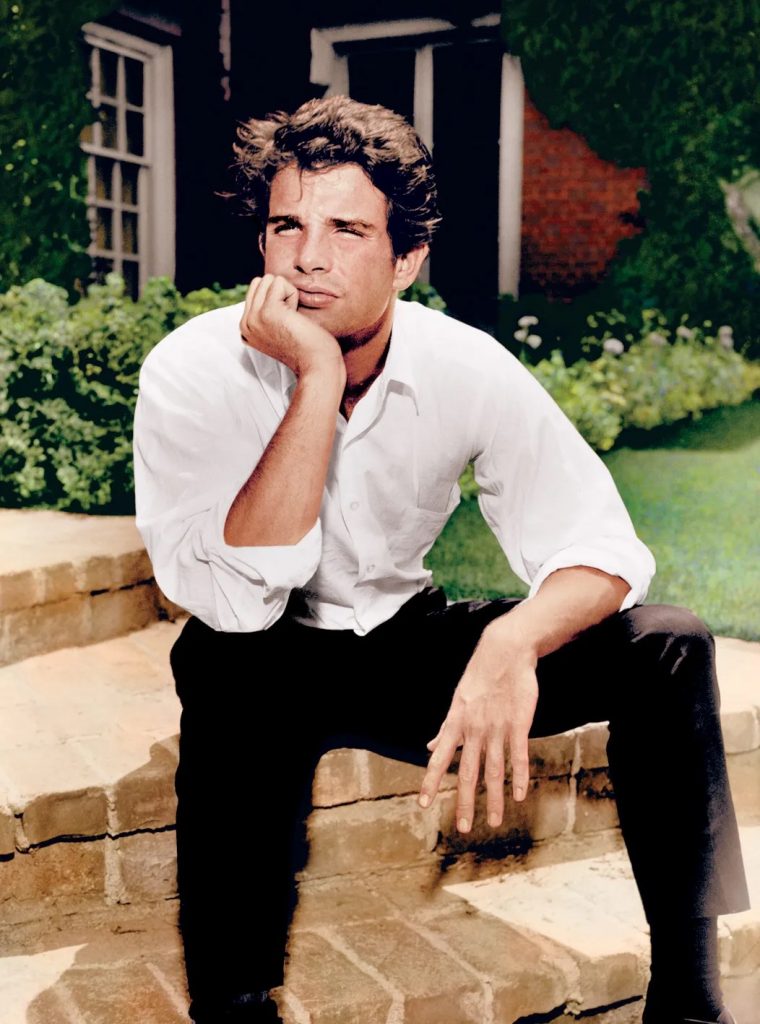
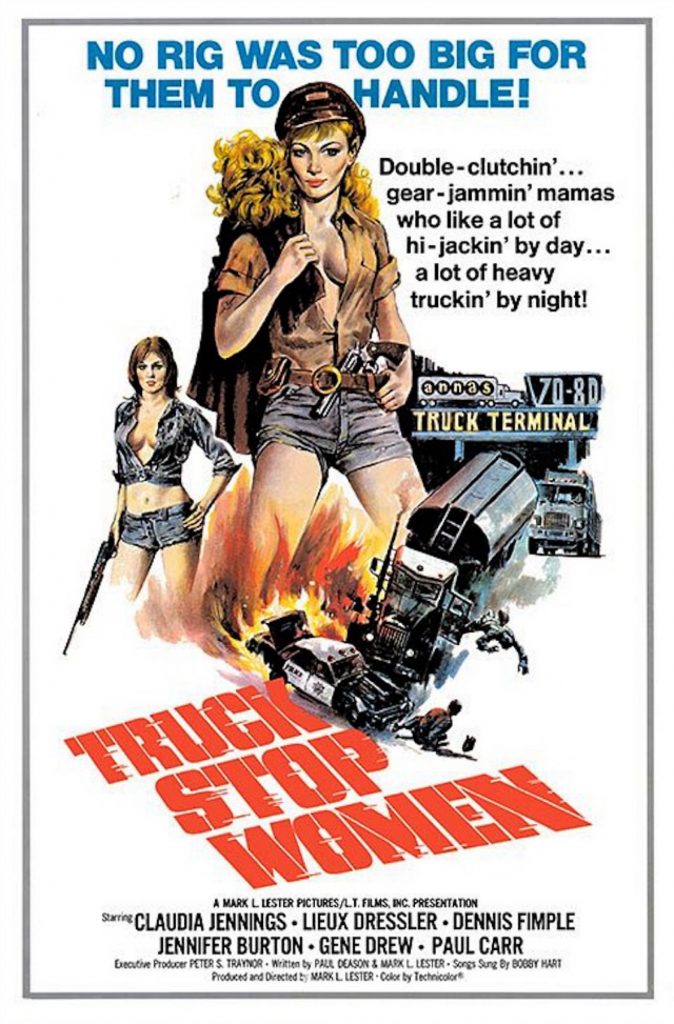
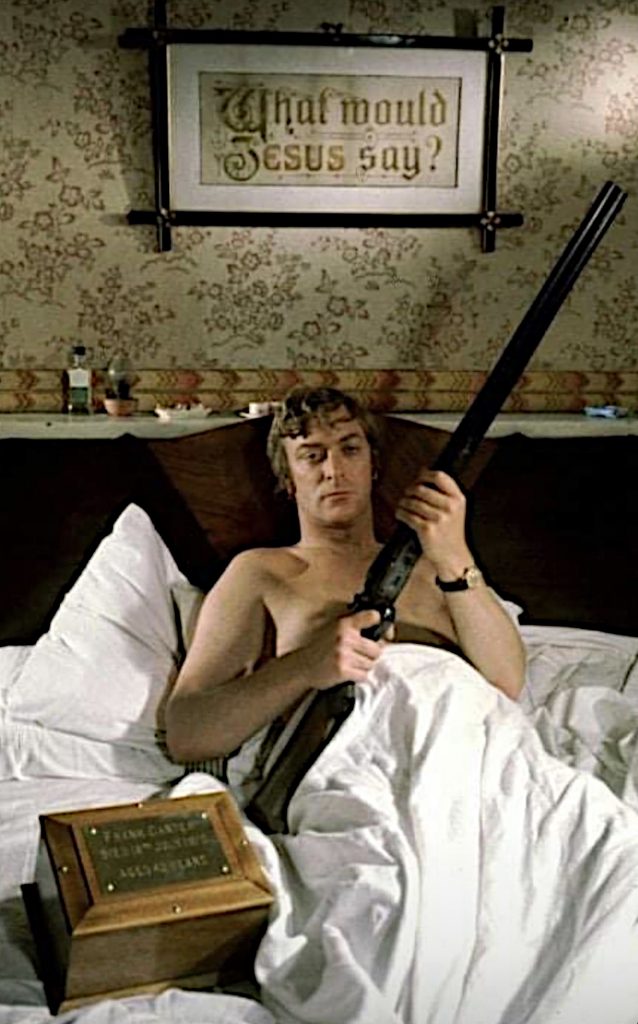
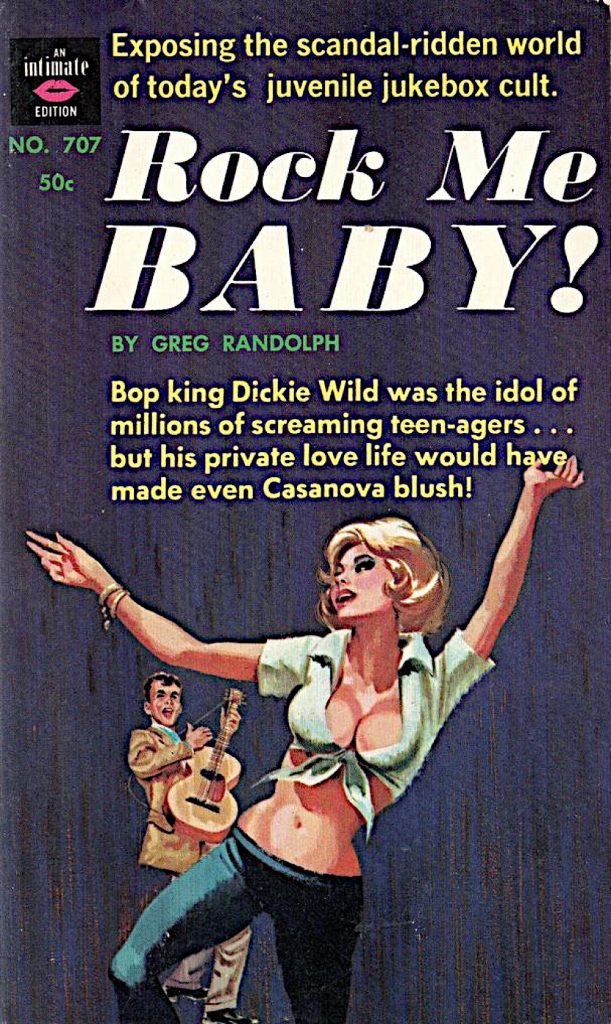

Is there some way that we could all gather round and shame Quentin Tarantino for writing a line of Pulp Fiction dialogue in which John Travolta‘s “Vincent Vega” says “what a gyp”?
The movie is nearly 30 years old but what does that matter? Tarantino did a bad thing and needs to pay for it. “What a gyp” is derived from the word “gypsy”, and basically means “what a swindle, what a raw deal.” The cruel, racist expression alludes to the Romani people, and carries negative connotations including “defrauded or cheated.”
A message from Whoopi Goldberg regarding today's episode of #TheView. pic.twitter.com/PIvwYRWMsy
— The View (@TheView) March 15, 2023
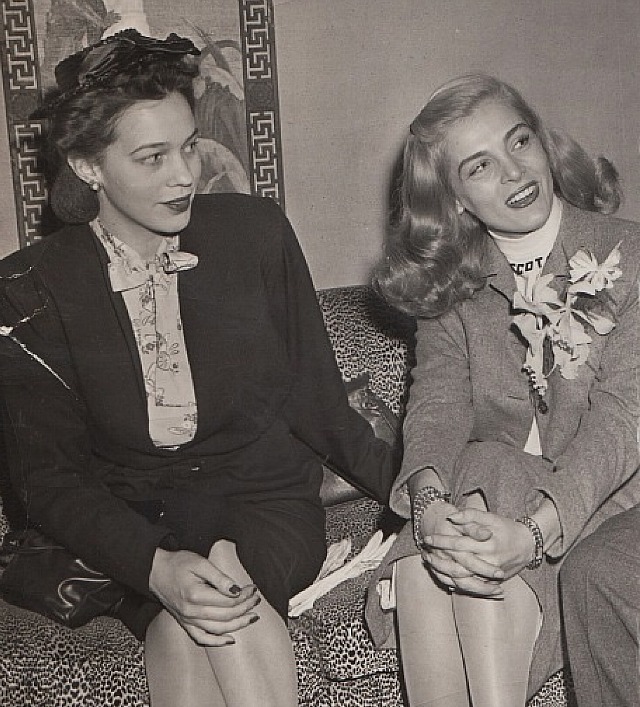
Dead Reckoning (’47), a noirish hriller in which Humphrey Bogart and Lizabeth Scott costarred, stinks. I caught it once and probably never will again. Scott, a femme fatale type with a smoky voice, never appeared in a really good film, not even during her mid to late ’40s heyday. You could argue that her most appealing performance was in Loving You (’57), and in that she was a second-banana to Elvis Presley.
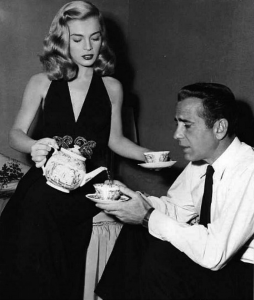
I would plunk down whatever for this real-life, utterly convincing Disney-made Star Wars lightsaber, and I’m speaking as someonme who totally abandoned the mythology after The Phantom Menace came out, or roughly 24 years ago. What will Disney charge? Minimally $750, I would think, and possibly a grand. Maybe $1500.
All my adult life I’ve been in love with Joni Mitchell‘s “Free Man in Paris.” But what I’ve especially loved all those years has been based on a misunderstanding, and right now I feel sick about this.
I’ve always adored the notion of Mitchell referring to herself as “a free man in Paris” as she describes her life as being partly defined by people less powerful or wealthy than herself hitting on her for help….”in it for their own gain”, “calling me up for favors.” Isn’t that the way of the world pretty much? Struggling or less powerful folks asking for help from wealthy, powerful people they might happen to know, looking for gimmes and whatnot? And Mitchell’s delightful, whimsical gender substitution…only an X-factor creative woman would call herself a “free man”, I’ve told myself all these years…a brilliant leapfrog notion…make your own rules, go your own way.
This morning I suddenly realized, to my immense disappointment in Mitchell as a lyricist, that “Free Man in Paris” is about David Geffen, with whom she travelled to Paris back in ’73 or whenever it was. I had simply never read up about the song; it had never occured to me that the tune was about another person’s experience, and Geffen’s yet! Jesus, I’m crestfallen.
This is almost as bad as my realization a few years back that I had misunderstood a key lyric in Mitchell’s “Refuge of the Roads.” I had thought that a line in the first verse went “hard of humor and humility, he said will lighten up your heavy load”….”hard of humor” as in hard of hearing….genius!
In fact Mitchell’s actual lyrics read “and we laughed how our perfection / would always be denied / ‘heart and humor and humility’ / he said ‘will lighten up your heavy load’ / I left him then for the refuge of the roads.” I’m so bummed out I can barely think, much less write.
Dr. Todd Grande: “At a ceremony filled with many people who are insincere, hypocritical and obsequious, it was refreshing to see somebody with a sharp sense of humor and who was generally disgusted with grandiose and extravagant displays of wealth and power. Ashley Graham should thank Hugh Grant for the education [that he provided]. Graham’s reaction of feigning comprehension as well as her tedious questions actually supported Grant’s original characterization of the Academy Awards as ‘Vanity Fair.’ She ended proving his point, which should represent her only successful endeavor during that interview.
“Grant’s witty and annoyed behavior was a metaphorical slap that far exceeded the dramatic value provided by Will Smith….Hugh Grant accomplished more without using violence. He reminded people that sometimes small talk can be so small [that] it should not be tolerated.”
Apparent fact: When Hugh Grant said that Sunday night’s Oscar congregation was like “‘Vanity Fair‘”, Ashley Graham thought he was referring to Vanity Fair‘s website/magazine or the VF after-party. God help her, but the poor woman had apparently never heard of William Makepeace Thackeray.
Graham undoubtedly knows who Thackeray is now, of course, and will almost certainly never again be at a loss for words when the subject of his novel, “Vanity Fair”, comes up.
Grande again: “‘Vanity Fair’ expresses a desolate view of the human condition…the term is generally used to describe the frivolous behavior of wealthy people and condemns shallowness…Hugh Grant‘s comment was not meant as a compliment to the Oscars. [Grant’s] reference to a 19th Century English novel might have been a bit esoteric for a lighthearted, superficial, feel-good interview before an awards ceremony…[which leads to the question] why did Grant presume that Graham” — a superficial, under-educated Millennial know-nothing — “would be familiar with the reference to Thackeray’s novel? Unfortunately a general lack of interest in the arts is fairly common these days. Grant was somewhat rude, yes, but at the same time he was authentic.”
Pete Hammond: “Who knew a Canadian biopic of an infamous smartphone could be this entertaining, even poignant and moving? BlackBerry is all that and more.
“In the hands of co-writer, director and co-star Matt Johnson, this long and winding tale of the rise and fall of the BlackBerry, the revolutionary device that first combined a computer with a phone all in one, is at once wonderfully funny, suspenseful and ultimately tragic. Here is a business story that has it all, and has much in common with other movies that focus on iconic tales of new-age businesses like The Social Network, Moneyball and The Big Short. Those movies had the likes of Aaron Sorkin and Adam McKay behind them, and this one ought to really put its chief architect Johnson on the cinematic map.
“Centering on nerdy and inventive Mike Lazaridis (a terrific and never better Jay Baruchel) and Jim Balsillie (Glenn Howerton — sensational), Johnson’s film starts in 1996 with the emergence of this unheard of idea of a phone that can also send and receive emails with its keyboard built into a magical device no one in the tech world had achieved before these Canadian dreamers actually found a way to make it work.
“Johnson and co-writer Matthew Miller turn the story of [the BlackBerry’s] brisk rise and meteoric fall into a kind of breathless tech fever dream, a relentless but addictive downbeat human comedy about the struggle to stay on top in a fast-moving industry.
Hammond again: “Audiences in the film’s core 30-60 age bracket will likely have David Fincher’s 2010 drama about the rise of Facebook — and perhaps also Danny Boyle’s 2015 Apple drama Steve Jobs — in mind, and BlackBerry doesn’t suffer by comparison.
“The big difference is that BlackBerry filters out the white noise to focus entirely on the workplace. We have no idea if the film’s two central characters, tech genius and RIM co-founder Mike Lazaridis (Jay Baruchel) and the company’s hard-nosed, borderline psychotic business head, Jim Balsillie (Glenn Howerton), are in relationships with anyone. We see Balsillie at home alone for a few brief seconds; the rest of the action takes place in the workshop and boardrooms.
“But first it is Lazaridis and his freewheeling, loopy but tech-smart buddy Douglas Fregin (played endearingly by Johnson himself), along with their unsophisticated tech-y friends, who are out to convince the world they can deliver on the promise of their then unnamed invention. Once they bring a sharp and uber-aggressive businessman, Balsillie, into their company Research In Motion, an idea from nerd-land turns into a reality — especially when Balsillie manages to convince Bell Atlantic, particularly chief skeptic John Woodman (Saul Rubinek), of its value for their servers.
[Originally posted on 11.3.22] To me a comfort movie is one that presents three basic things. One, semi-recognizable human behavior (i.e., bearing at least some resemblance to that which you’ve observed in your own life, including your own something-to-be-desired, occasionally less-than-noble reactions to this or that challenge). Two, some kind of half-believable story in which various behaviors are subjected to various forms of emotional or psychological stress and strain. (This should naturally include presentations of inner human psychology, of course, as most people tend to hide what they’re really thinking or scheming to attain.) And three, action that adheres to the universal laws of physics — i.e., rules that each and every life form has been forced to submit to since the beginning of time.
There are many ways of telling stories that (a) contain recognizable human behavior, (b) engaging stories and (c) adhere to basic laws of gravity, inertia and molecular density. I’m talking about tens of thousands of square miles of human territory, and movies that include Her, Solaris, Boyhood, Betrayal, Children of Men, Leviathan, Thelma and Louise, Superbad, Cold War, Across 110th Street, Shoot the Piano Player, Them!, A Separation, The Silence, Se7en, Holy Motors, Silver Linings Playbook, The Death of Mr. Lazarescu, Hold That Ghost, The Miracle Worker, The Wolf Man, Ikiru, Crossfire, Long Day’s Journey Into Night, Duck Soup, Moonlighting, What’s Up, Tiger Lily?, the better screwball comedies of the ’30s, The Blob, First Reformed, Ichi the Killer, The Equalizer 2, Adaptation, Four Months, Three Weeks and Two Days, Punch Drunk Love, Out Of the Past, Danton, Some Like It Hot, The Big Sky and God knows how many hundreds or thousands of others.
Another way to explain my c.z. concept is a series of concentric-circle realms that I use to measure and calibrate. The innermost realm is my own life story, my own limitations and weaknesses, the forces and personalities that I’ve personally known and dealt with (or have run away from). The second realm is defined by the experiences of others I’ve known or have run into — friends and family, characters I’ve read about or come to know in movies or plays, anything that has crossed my radar screen and/or intruded into my turf that has seemed to make at least some kind of basic sense. The third realm is one of odd happenstance or surreal imaginings or derangements or mystical wonder — anything weird or extra-spiritual or wackjobby or beyond-rational that doesn’t “add up” but is nonetheless an aspect or outgrowth of our life on this planet (or other planets…what the hell).
Anything that comes from the fourth, fifth or sixth realms (such as the content of Everything Everywhere All At Once) may or may not work for me. I’m theoretically open to these realms, but I’m only human and am therefore partial to the first three.
“Everything Everywhere Shouldn’t Have Been Anywhere Near Best Picture. But What Else To Expect From Oh-So-woke Oscars?“, by The Daily Mail‘s Brian Viner (3.14.23):
“Not that there’s much of an overlap between the aging Academy members and those who understand TikTok, but maybe this is where those emperor’s new clothes come in: nobody over 50 wanted to declare themselves completely mystified by this self-indulgent exercise in cinematic whimsy from writer-directors Daniel Kwan and Daniel Scheinert, and so they all voted for it.”
Problem solved!
“What Hollywood folk really understand is business. They know how lucrative the Far East market has become, hence the growing number of films with Chinese settings, characters and narratives. Even the animation studio Pixar jumped on that bandwagon with last year’s Turning Red, a film that follows a 13-year-old Chinese-Canadian girl who turns into a giant red panda.
“And they understand box-office numbers. Following a discreet launch last year at the South By Southwest film festival in Austin, Texas (a far cry from the mighty festivals of Cannes and Venice), EEAAO was given a limited theatrical release in the U.S., and in Britain almost didn’t make it into cinemas at all.
“But it quickly became a cult hit and then a genuine commercial hit, as [younger] audiences appeared to warm to its wackiness. With an estimated budget of less than $25 million (£21 million), it has so far grossed well over $100 million (£82 million) worldwide, with more box-office and home-streaming dollars certain to flood in following its Oscars success.
“For me that raises the mystery of who those appreciative audiences are. Several of my most cine-literate friends were left cold by EEAAO. One fell sound asleep and woke up only when it was all over, as if in firm defiance of the sensory bombardment that kicks in after the first 20 minutes or so. Another walked out thoroughly bemused after 45 minutes; only the third time in more than 50 years that he has ever left a cinema before the final credits. Even my son, very much part of that TikTok demographic, found it ‘challenging’ and ‘too much’.
“But [some] who work in the film industry love it unconditionally, at least if we are to believe in the Oscars. The thing is, though, I don’t.
“No film in the 95 years of the Academy Awards has ever won all four of the main acting prizes and only three have won three out of four: A Streetcar Named Desire in 1951, Network 25 years later, and now, remarkably, EEAAO. But it’s only remarkable because, quite clearly, this film does not belong in such illustrious company.
It’s over, man. It really is. Jessica Chastain was all masked up during the Oscars, and it seemed ridiculous that she was.
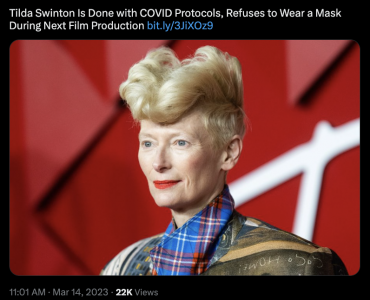
THR‘s Borys Kit is reporting that Quentin Tarantino‘s next and allegedly final film will be called The Movie Critic, and will be set in late 1970s Los Angeles with a female lead at its center.
This suggests that the story could be about Pauline Kael‘s decision, urged by Warren Beatty, to leave her New Yorker critic gig for a misbegotten sabbatical as a Paramount creative exec.
Kael wound up fiercely butting heads with Paramount’s vice-president of production Don Simpson, among others, and returned to her Manhattan berth in ’80. Vanity Fair‘s Lili Anolik wrote an excellent article about this episode in early 2017.
Kit: “The timing of that Paramount job seems to coincide with the setting of the script, and [Tarantino] is known to have a deep respect for Kael, making the odds of her being the subject of the film more likely.”
HE to Tarantino: If The Movie Critic will indeed tell Kael’s story, great. I’m presuming you’ll be fictionalizing it to some extent to allow for sex and violence add-ons, but I’m sure you’ll work that out.
Special plea: Please don’t cast an actress who physically resembles Kael, not because she was unattractive but because she was only 4’11” tall. That’s an alienating height for either gender; almost dwarf-like. (Even the tiny Truman Capote was 5’3″.) Please cast an actress who’s at least 5’4″ or higher.
Or go against the grain and hire a giraffe. Someone, you know, who’s Uma Thurman‘s height (i.e., 5’11”). Thurman, in fact, would be a good choice as she’s nearly 53, which is close to Kael’s age when she took the Paramount gig (i.e., 59).

John Cromwell‘s Dead Reckoning (’47) is a second-rate Humphrey Bogart noir in which Lizabeth Scott (24 or 25 at the time) plays a femme fatale from hell. Her character is alternately called “Coral” or “Mike”, but her venality is such that she’s never quite human.
Screenwriters Steve Fisher and Oliver H.P. Garrett provide some agreeably snappy dialogue, but the plot is impossible — anti-logical, convoluted, never touches bottom. The closing death scene, however, is rather good. Her head wrapped in bandages, Scott has been fatally wounded in a car crash and is only minutes from death. A former WWII parachuter, Bogart sidles up bedside and gently talks her through the death process.
“It’s like going out the jump door. Just let go, Mike…don’t fight it. Remember all the guys who’ve done it before you. You’ll have plenty of company, Mike. High-class company. Geronimo, Mike.”